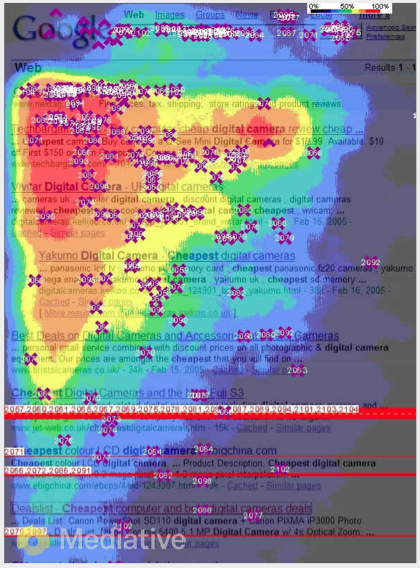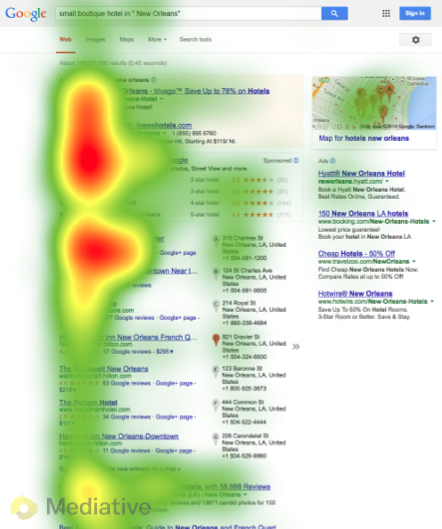Small Tradeshow Budget and Booth, Big Impact: 4 Ways to Improve ROI
In the whirlwind of a large-scale trade show, a 10×10 booth can easily fade into the background. These compact booths often get overlooked and lost...
2 min read
Sarah Campagna Wed, Oct 29, 2014
We often conduct interviews with our customers’ customers as part of our marketing assessment. These interviews provide valuable insight into their buying habits, needs and expectations. One recent conversation went like this…
Me: “When conducting research to purchase a product like this [high-tech industrial metrology equipment] where do you turn – tradeshows, industry publications, colleagues in your field?”
Interview subject: “I’m under 30. If I want to do research on a product, I just Google it. If I have to get price quotes, I look at the next two companies in line.”
Cue the sound of a slot machine jackpot. We now know how customers seek information about products and brand — and thus, where to spend marketing dollars.
Many of us remember a time when the real key to winning the search game was being number one in organic results, or at least falling within what was known as the golden triangle, a term coined by Canadian digital marketing company Mediative.

But over the past decade, shifts in our culture and changes in the way search results are displayed have changed the way we interact with Google results. People are looking at more listings for less time, 1.17 seconds to be exact. The heat map of Mediative’s 2014 eye-tracking study on Google search looks much different than that of their 2005 study, shown above. Today's SEO sweet spot is more like a golden ladder than a triangle.

It can be hard for smaller companies like our clients to compete for the top organic or paid search ranking when it comes to common keywords. But falling within this new heat map is much more achievable.This study is proof that the time and money we put into SEO and AdWords still makes sense for our clients.

These results also remind us that content, metadata and microdata are more important that ever. With just over a second available to grab your potential customer’s attention, the most relevant information for your customer has to come first. Not too many years ago, chatter on the blogosphere indicated that metadata just didn’t matter that much any more. Mediative reminds us that optimizing your website is not a place to cut corners.
If you are still struggling to compete in widely popular keywords, consider paid search ads your best friend. Companies can increase brand awareness, and better yet win some quality clicks, by providing needed information through sponsored text ads. The click-through rates for these ads have remained strong over the past decade, with the top two sponsored ad spots receiving a click-through rate of 14.5% last year.
And don’t discount the value of ad space in branded searches (i.e. when people search your company by name). Though some may balk at spending money for searches where your company will appear first in organic search results, purchasing ads for these searches has been proven to increase purchase consideration and improve brand recall.
If my interview subject is right about our younger buyers (and he is not alone in communicating this message to marketing researchers) we must give organic and paid search the time and budget they deserve when developing our marketing plans for the coming year. Especially if you are from a small shop, take this as a reminder that online marketing efforts are an ongoing process requiring constant attention. Keep running those A/B copy tests, trying different keywords, and experimenting with different landing pages. And take a little time to review metadata across your website. Keep track of organic traffic to those pages and you will hopefully notice an uptick. If you do a serious overhaul of your metadata, don’t be afraid to resubmit your site to Google to be re-crawled. It can be an easy step to overlook.

In the whirlwind of a large-scale trade show, a 10×10 booth can easily fade into the background. These compact booths often get overlooked and lost...

Featuring insights from Starlet Smith, Lead Agile Coach at Alliant Energy Product development cycles are lengthening, increasing the risk of missing...

We work with B2B leaders every day who have extensive marketing data, but don't know what to make of it. It's hard to know you're on track to meet...